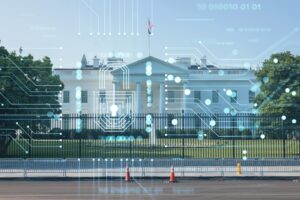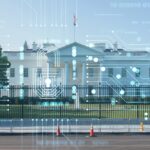Maryland Gov. Wes Moore announced on April 28 that the state of Maryland and the U.S. Defense Advanced Research Projects Agency (DARPA) are partnering to establish the Capital Quantum Benchmarking Hub at the University of Maryland (UMD).
California Gov. Gavin Newsom said on April 30 that the government is launching three major new deployments of generative artificial intelligence (GenAI) tech in state operations aimed at easing highway congestion, improving road safety, and streamlining customer service for taxpayers.
As cities adopt more “smart” technology to manage infrastructure and improve public services, action on range of policy choices – such as improving collaboration and being more transparent about technology capabilities and citizen data use – can help to alleviate citizens’ concerns about data privacy and the costs of tech deployments, the Government Accountability Office said.
A new executive order from President Donald Trump is directing the integration of artificial intelligence into K-12 schools in an aim to equip the future U.S. workforce with skills needed to further the technology’s innovation capabilities.
The University of Arizona has hired David Ebert as the university’s first-ever chief AI and data science officer.
The Cybersecurity and Infrastructure Security Agency (CISA), Department of Homeland Security’s (DHS) Science and Technology Directorate (S&T), and the Idaho National Laboratory (INL) recently hosted Louisiana State University (LSU) and industry partners at CISA’s Control Environment Laboratory Resource (CELR) for a cybersecurity training exercise.
As generative AI capabilities reshape cloud technologies, GovRAMP has launched a new AI Security Task Force aimed at strengthening cybersecurity and trust standards for AI-powered cloud solutions used by public sector organizations.
While the Federal Communications Commission’s (FCC) National Broadband Maps spotlight underserved areas across the nation as Congress continues to funnel billions into improving internet connectivity – millions of Americans still aren’t seeing benefits of that funding due in part to the need for better mapping data and greater coordination across Federal agencies.
K-12 teachers are adopting generative AI (GenAI) technologies in the classroom at a greater rate than their higher education counterparts, according to new national survey data from the global edtech firm Cengage Group.
The number of U.S. school districts providing training for teachers on artificial intelligence technologies has more than doubled in the span of a year, with 48 percent of districts offering at least some AI training by fall 2024 – up from just 23 percent the year before.













